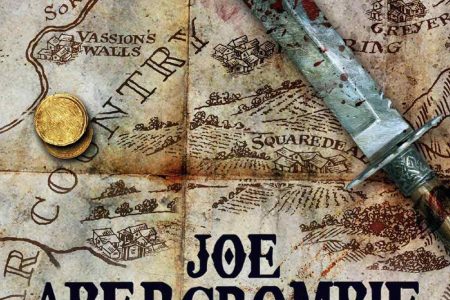My chronological memory is rather hazy, which is a shame; when I remember actual things, I do have a strong sense of the memory. I can’t recall when I went to a reading/Q&A by Neil Gaiman – I think it was soon after I returned to London, which would be about mid- to late-1990s but I wouldn’t swear to that in court. What I remember most, apart from the enjoyable time listening to Neil talk and read, was him reading the last words of the first chapter of the book: ‘Bugger.’
Or, that’s how I remember it. This version’s chapter one doesn’t end with the word ‘bugger’ (it’s about two-thirds of the way in), and I don’t know if it’s my memory or the fact that I have ‘Author’s preferred text’. Whichever it is, it’s still a lot better than the television series. This is in itself is quite odd – Neil Gaiman and Lenny Henry get a television series created but Neil wasn’t completely happy with the finished product (more due to the nature of the BBC making fantasy programmes at the time than anything else) so he writes the book of the show for himself. Normally, when other media ruins a story, you’ve always got the original – how many times does somebody go out of their way to effectively create the original for comparative purposes?
Richard Mayhew, an ordinary chap in an ordinary job, helps a homeless-looking girl in trouble, and his life changes forever. Because she is Door of London Below, the surviving member of her family, who have all been killed, and is still being hunted. Having interacted with her, and helped her obtain protection in the form of the Marquis de Carabas, Richard is now one of London Below, and his existence is ignored by London Above – he no longer has a job, a flat or a girlfriend. Desperate and alone, through chance he gets to London Below and finds Door again and aids her in her quest to find the people responsible for the death of her family. Along the way, he meets people with names of familiar London places – Old Bailey, Hammersmith, the Seven Sisters, the Earl of Earl’s Court, the Black Friars – and sees the other side of London.
As with all Gaiman’s work, the mix of the real and magical is thoroughly absorbing and totally believable – there is never any room for doubt in the world he has created. This had an unwanted side-effect of making the stretches of the beginning of the book in the normal world seem even more mundane than is the obvious intention, but that could be my preference for the fantasy aspect of the novel. It matters little after getting into the story – Gaiman’s prose, clear and eloquent, brings the magical to life in an extraordinarily apposite manner and you forget everything else. I wasn’t completely convinced of the transformation of Richard into the hero character at the end, but that could be the good job of making him so ordinary throughout the rest of the book.
Being a Londoner, the transformation of the tube map into a collection of strange people and places is utterly charming (the Angel Islington brings a smile to my face just typing it). The characters that populate the story are a delight – the enigmatic Marquis, the white collar professional thugs Mr Croup and Mr Vandemar are a lot of fun, Hunter – and the book feels like it is a complete thing, rather than the novelisation of a television series because Gaiman wasn’t totally happy with the way the show worked out (and rightfully so). Although my favourite novel of his is American Gods, Neverwhere is still a wonderful mix of story and storytelling that gets quite close.




